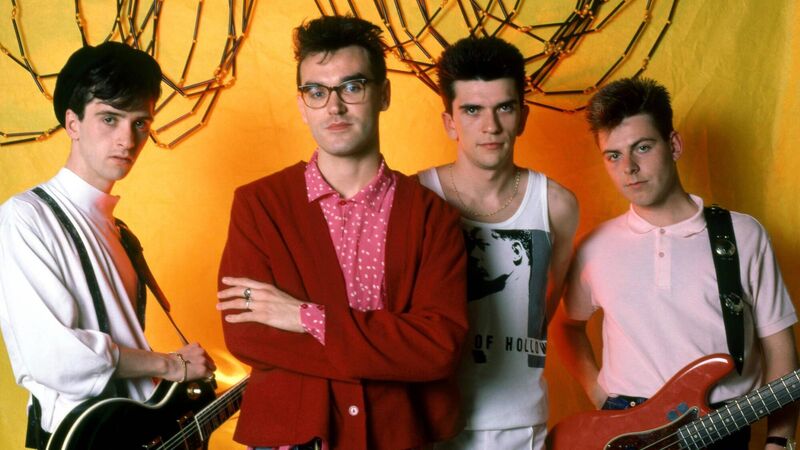Tom Dunne: The Smiths, and why the sun shines out of their behinds

Mike Joyce, second from right, with the other members of The Smiths: Johnny Marr, Morrissey, and Andy Rourke. (Photo by Ross Marino/Getty Images)
Most music biographies have more in common with Father Ted’s Golden Cleric Award acceptance speech than they’d like to admit. They tend to oscillate between settling old scores or taking total credit for a team game. To find one, Mike Joyce’s that is simply a love letter to his band, The Smiths, is an unalloyed joy.
I’m not sure people realise just how important The Smiths were. I’d rank them just after the Sex Pistols in terms of seismic shift. The Pistol lit a flame, but it was dying out before The Smiths arrived with Hand in Glove on Top of the Pops. After that and it went up again like a Roman candle factory.




